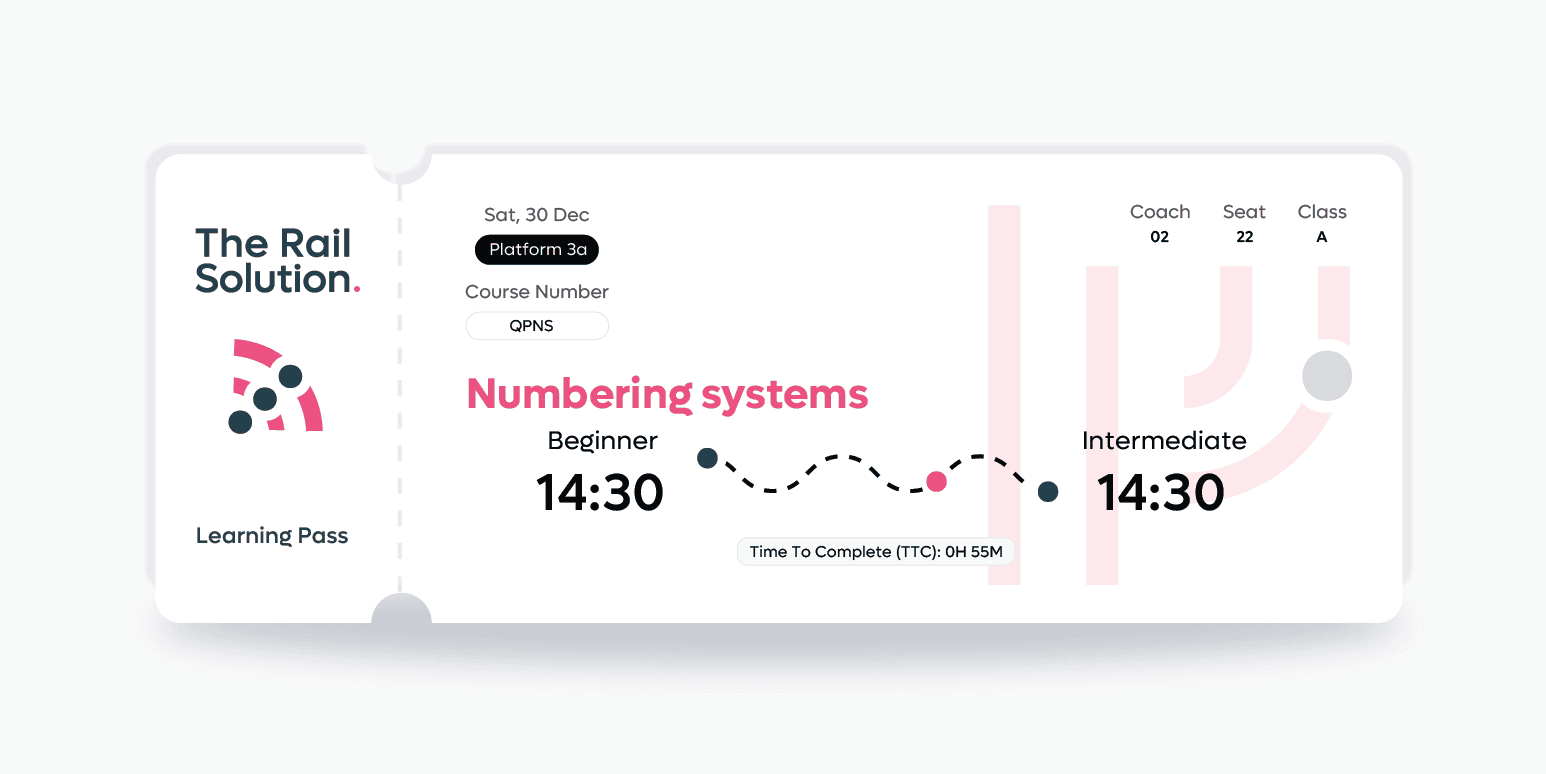
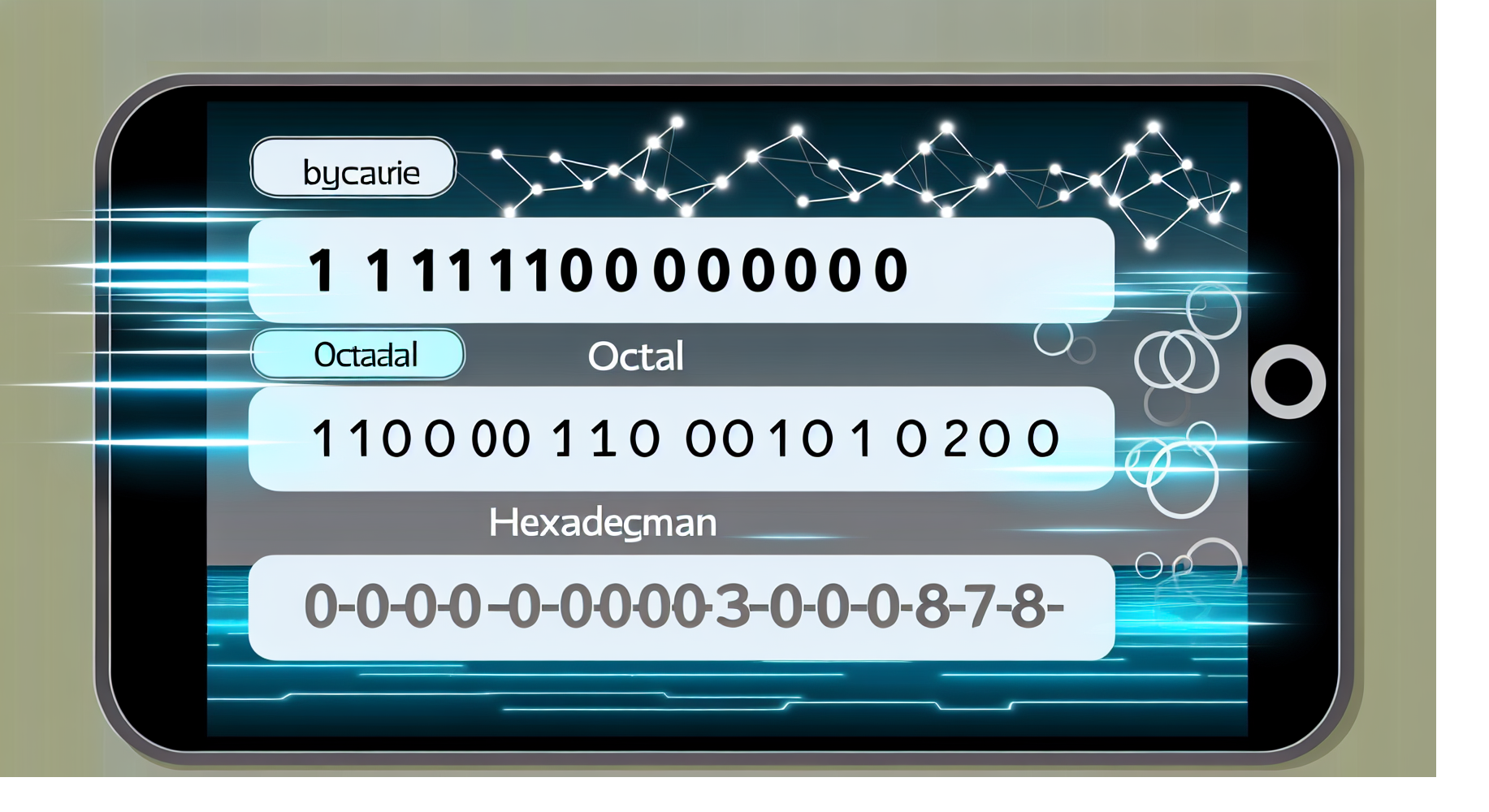 Binary is a fundamental part of understanding compound CVs, we will show how base 2, the binary numbering system works and also explore and learn other common number bases including octal (base 8), and hexadecimal (base 16) and their relationship to decimal. Binary is a fundamental part of understanding compound CVs, we will show how base 2, the binary numbering system works and also explore and learn other common number bases including octal (base 8), and hexadecimal (base 16) and their relationship to decimal.
Binary is a fundamental part of understanding compound CVs, we will show how base 2, the binary numbering system works and also explore and learn other common number bases including octal (base 8), and hexadecimal (base 16) and their relationship to decimal. Binary is a fundamental part of understanding compound CVs, we will show how base 2, the binary numbering system works and also explore and learn other common number bases including octal (base 8), and hexadecimal (base 16) and their relationship to decimal.
By the end of this short course, you will be able to:
- Convert between bases
- Understand each base
- Recognise the integers of each type
Cost: £10.00 |
Different number bases The exponential conversion Converting Decimal to binary |
Octal: To and from Binary and decimal Hexadecimal: to and from Binary and decimal |
| Allow: Course: 0 Hrs 55 Min. Quizes: 0 Hrs 40 Min. |
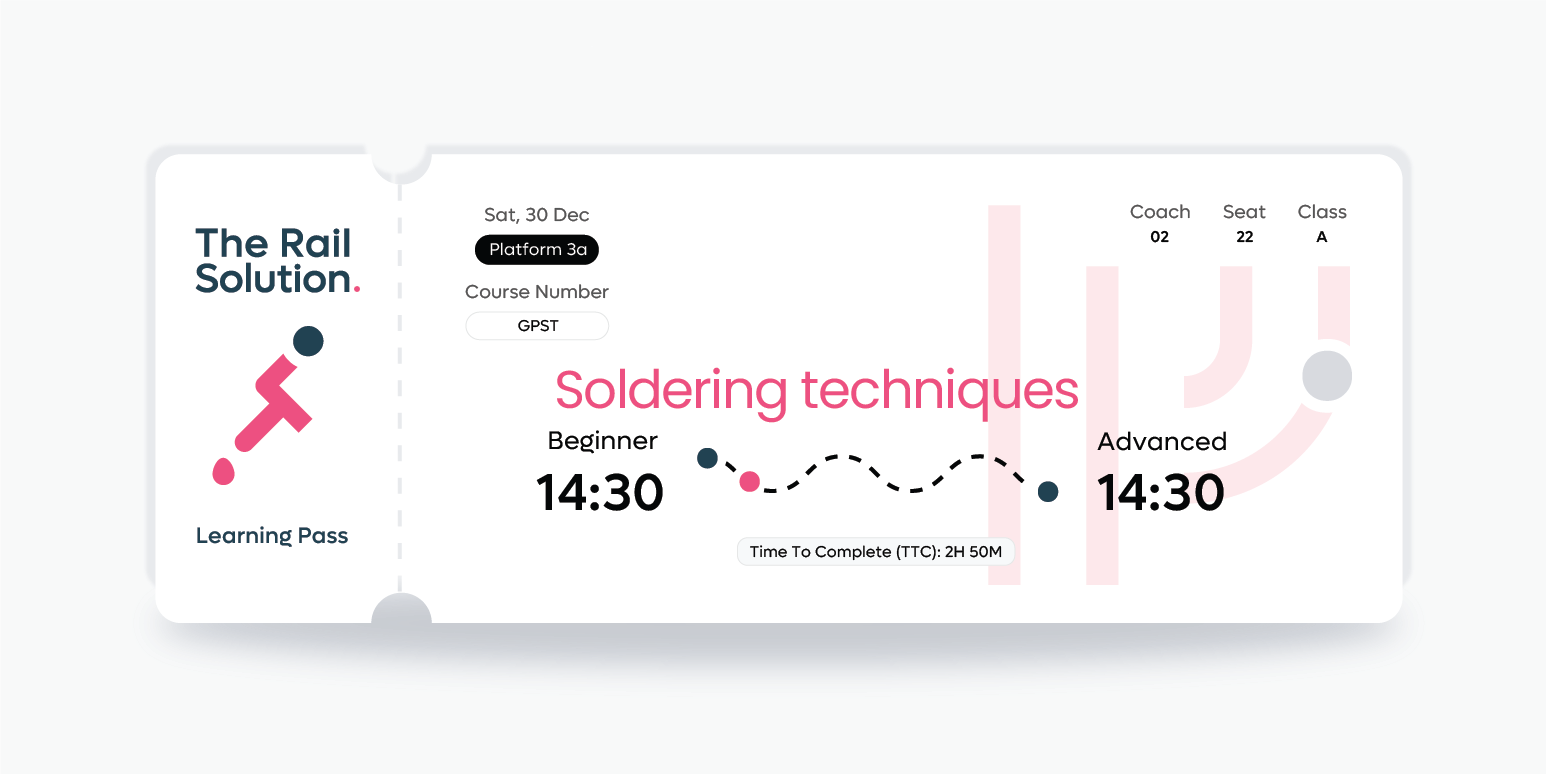
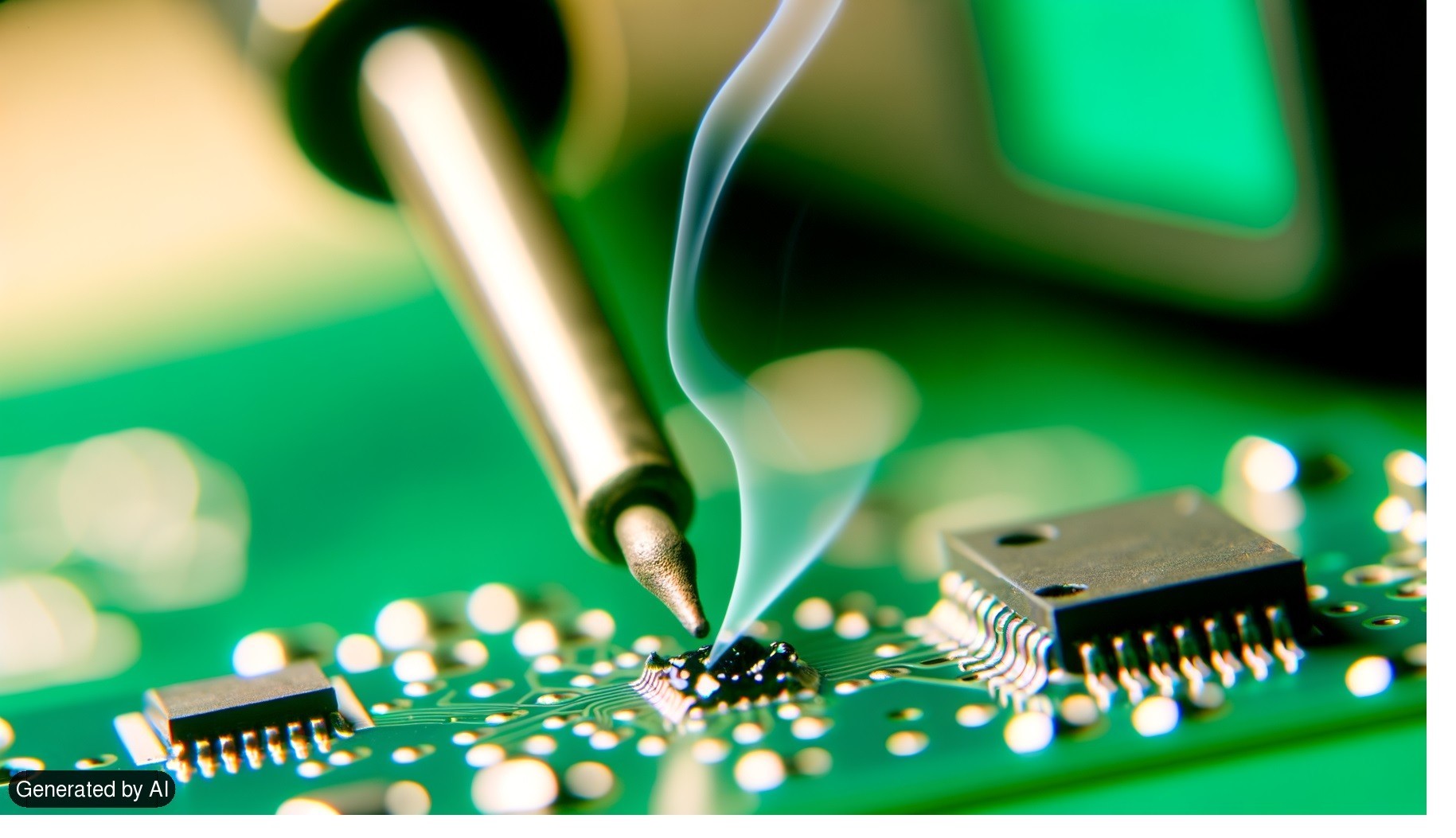 This comprehensive soldering course is designed for individuals ranging from beginners to experienced hobbyists looking to enhance their skills in soldering components, track and wires.
This comprehensive soldering course is designed for individuals ranging from beginners to experienced hobbyists looking to enhance their skills in soldering components, track and wires.
Participants will gain confidence in executing reliable and durable connections through structured lessons that start with fundamental techniques and progress to more advanced applications. The course is user-friendly, with content presented in manageable segments, ensuring accessibility for all learners.
With guidance throughout, attendees will be well-prepared to undertake various soldering projects and achieve professional-level results.
Cost: £35.00 |
An overview of soldering Safety precautions What can be soldered? Choosing tools and materials The Essential tools Leaded and unleaded solder Flux types The soldering iron |
Additional tools Forms of Solder Soldering Preparation and tinning Making the joint (Wires) Making the joint (PCB) Joining metals Joining wires |
| Allow: Course: 2 Hrs 20 Min. Quizes: 1 Hrs 10 Min. |
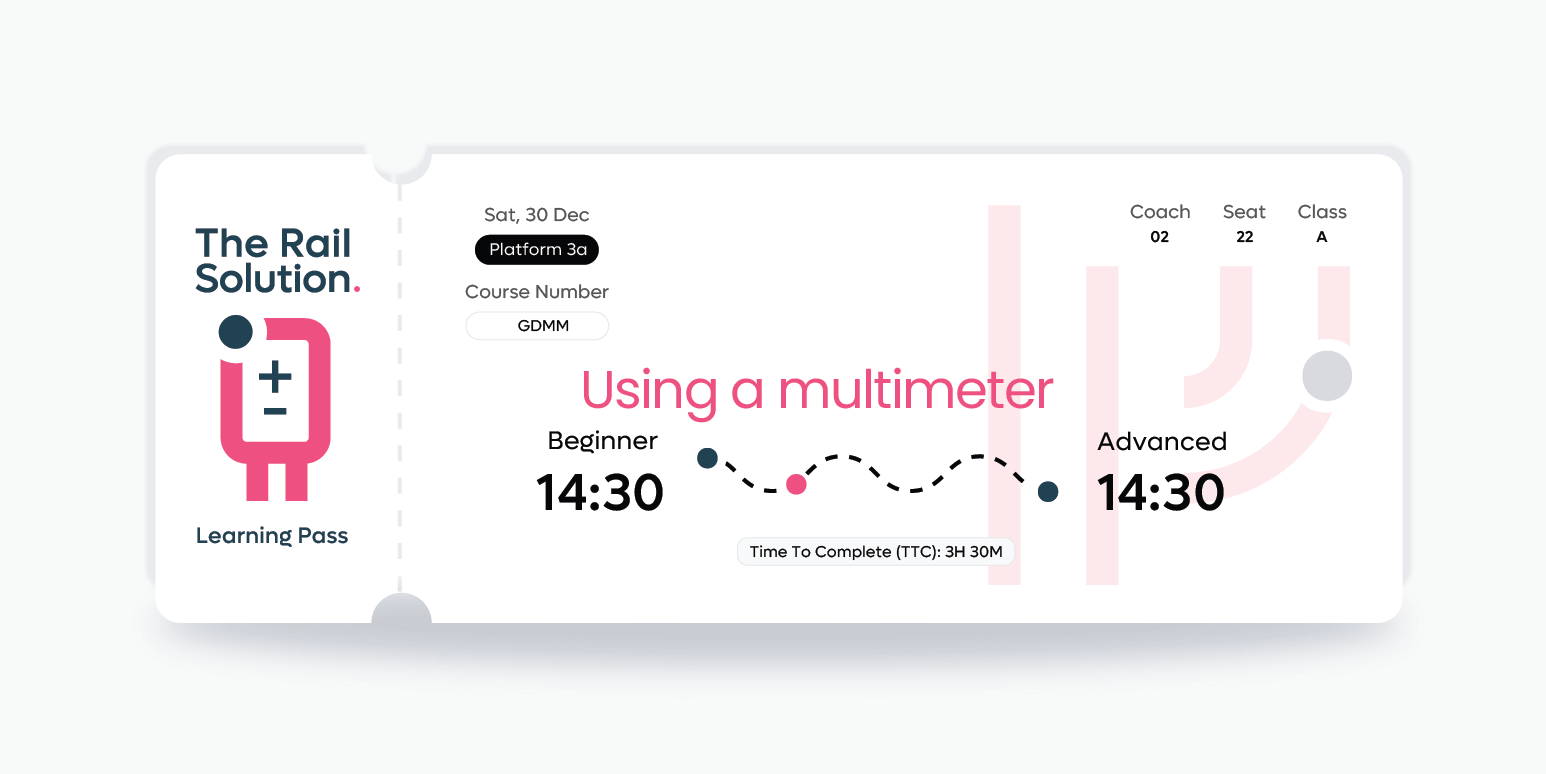
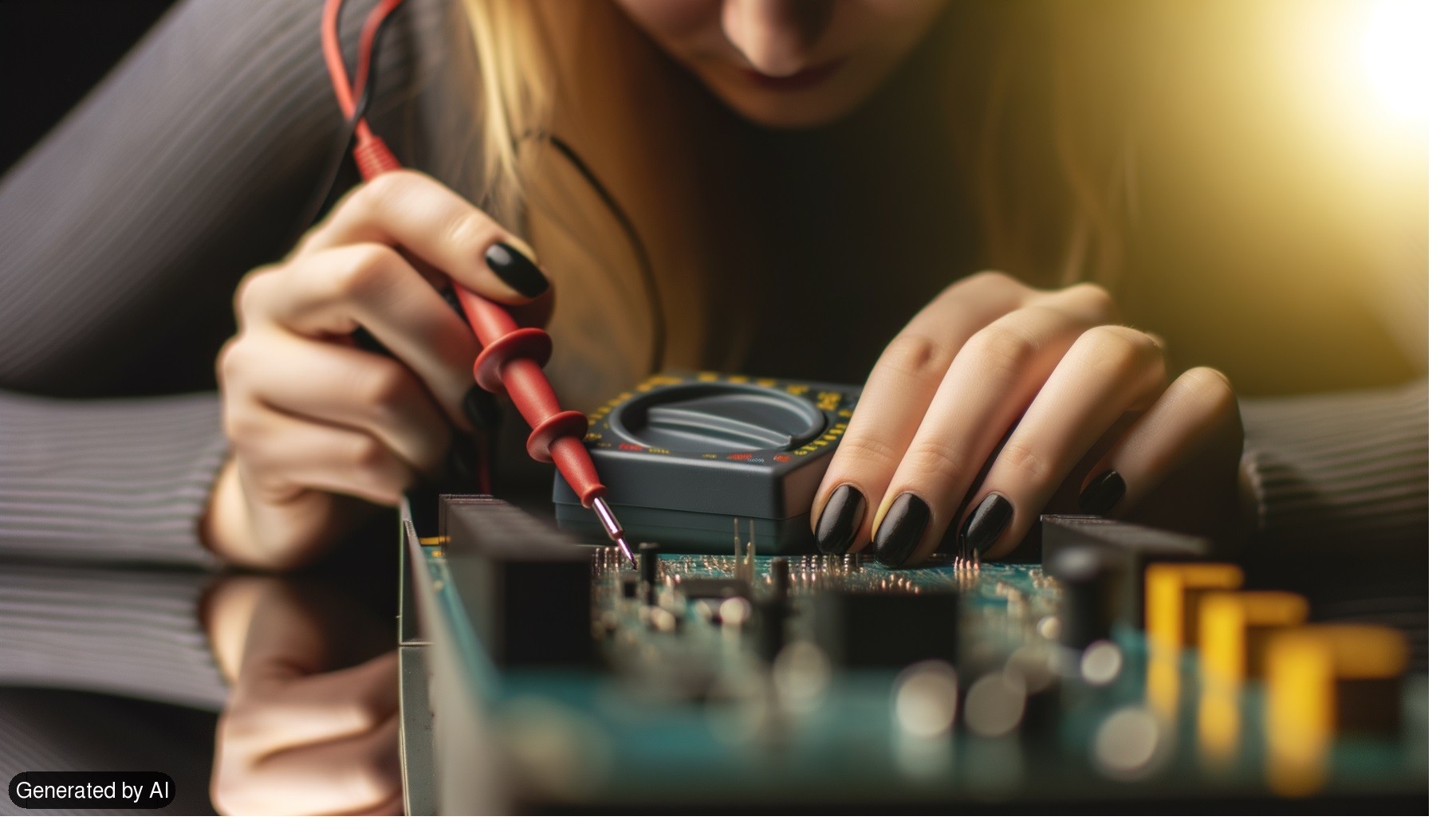 We equip beginners with the essential skills for measuring voltage, current, and resistance and discuss using both digital and analogue multimeters.
We equip beginners with the essential skills for measuring voltage, current, and resistance and discuss using both digital and analogue multimeters.
During the course, participants will gain a solid understanding of electrical basics and safety protocols, progressing through hands-on lessons, that cover practical applications such as troubleshooting household appliances and automotive electronics.
The curriculum emphasises clarity and comprehension, breaking down complex concepts into manageable modules.
By completion, learners will not only become adept at using the multimeter but also gain the ability to approach electronic problems with confidence, enhancing their layout diagnostic and project skills.
Cost: £35.00 |
An overview of Multimeters Warning and safety Precautions What is a multimeter? Categories of multimeter The anatomy of a multimeter Multimeter probes Basic Readings DC Volts AC volts |
RMS measurements Reading Amps (AC & DC)Testing components Resistance tests Continuity Testing wiring Testing Capacitance Testing Diodes and transistors Advanced functions of a multimeter |
| Allow: Course: 3 Hrs 20 Min. Quizes: 1 Hrs 10 Min. |

 General skills such as
General skills such as